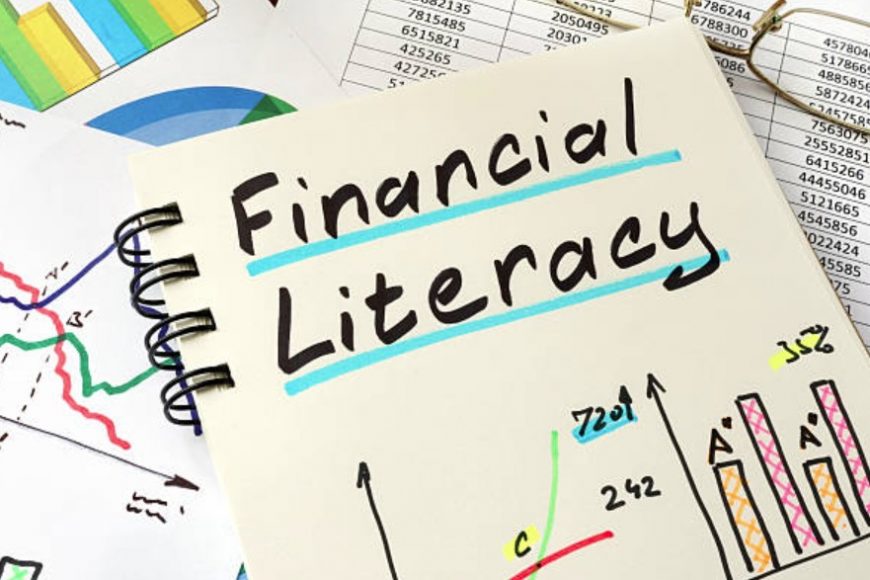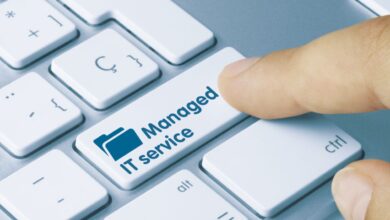In today’s complex financial world, being financially literate is crucial to achieving financial stability and success. Financial literacy means having the knowledge and skills to manage one’s finances effectively, make informed decisions, and avoid costly mistakes.
In this article, we will explore the importance of financial literacy, including its benefits for personal and professional life, as well as the consequences of not having it. We will also discuss some practical ways to improve your financial literacy so that you can take control of your finances and achieve your goals.
Why Financial Literacy is Important
Financial literacy refers to the knowledge and skills required to make informed and effective decisions regarding money management. It involves understanding financial concepts such as budgeting, saving, investing, borrowing, and managing debt. Financial literacy is essential for individuals of all ages and backgrounds to achieve their financial goals, reduce financial stress, and build a secure financial future.
Financial literacy is important for several reasons. First, it helps individuals make informed financial decisions by providing them with the tools and knowledge to evaluate different options and understand the implications of different financial choices. This can help individuals avoid costly mistakes and make the most of their money.
Second, financial literacy enables individuals to manage their finances more effectively. By understanding financial concepts such as budgeting, saving, investing, and debt management, individuals can take control of their finances and make the most of their resources. This can help reduce financial stress and achieve long-term financial goals such as retirement savings or homeownership.
Third, financial literacy is essential for economic and social well-being. When individuals are financially literate, they are more likely to contribute to the economy, create wealth, and build stronger communities. In contrast, a lack of financial literacy can contribute to debt, poverty, and financial insecurity, which can have negative impacts on both individuals and society as a whole.
Five Key Components of Financial Literacy
According to UBS, a global financial services company, these are the five key components of financial literacy. Here is a brief description of each component:
- Earn: This component involves understanding how to earn income and manage your career. This includes developing skills and education that can lead to higher-paying jobs, negotiating salaries and benefits, and managing income effectively.
- Save and Invest: This component involves understanding how to save and invest money to achieve financial goals such as retirement or a down payment on a home. This includes understanding different types of investment options, risk tolerance, and developing a savings plan.
- Protect: This component involves understanding how to protect assets and income. This includes understanding insurance options such as health, life, and disability insurance, as well as estate planning and other legal considerations.
- Spend: This component involves understanding how to manage spending and create a budget. This includes understanding expenses and prioritizing spending to align with financial goals.
- Borrow: This component involves understanding how to borrow money responsibly and manage debt. This includes understanding different types of loans, interest rates, and repayment options, as well as developing a plan to pay off debt.
Overall, these five components provide a framework for individuals to develop financial literacy and manage their finances effectively. By understanding these components and how they relate to personal finance, individuals can achieve financial stability and success.
How to assess your financial literacy?
Assessing your financial literacy can help you identify areas where you may need to improve your knowledge and skills to manage your finances effectively. Here are some steps to assess your financial literacy:
- Evaluate your knowledge: Take some time to evaluate your current knowledge of financial concepts such as budgeting, saving, investing, and debt management. Consider taking a financial literacy quiz or test to identify areas where you may need to improve.
- Review your financial situation: Evaluate your current financial situation, including your income, expenses, savings, and debt. This can help you identify areas where you may need to improve your financial management skills.
- Consider your financial goals: Identify your short-term and long-term financial goals, such as saving for a down payment on a home or planning for retirement. This can help you prioritize your financial decisions and focus on areas where you need to improve your knowledge and skills.
- Seek feedback: Ask trusted friends, family members, or financial professionals to provide feedback on your financial literacy and areas where you may need to improve.
- Take action: Once you have identified areas where you need to improve your financial literacy, take action to learn more. Consider taking a financial education course, reading books or articles on personal finance, or working with a financial advisor to develop a financial plan.
By taking these steps, you can assess your financial literacy and develop a plan to improve your knowledge and skills to achieve your financial goals and build a secure financial future.
Ways to improve your financial literacy
Improving your financial literacy is an ongoing process that requires a commitment to learning and developing new skills. Here are some ways to improve your financial literacy:
- Read books and articles on personal finance: There are many books and articles available that cover a wide range of financial topics. Reading can help you develop a better understanding of financial concepts and strategies.
- Take a financial education course: Many community colleges and universities offer courses in personal finance. These courses can provide a comprehensive overview of financial topics and strategies.
- Attend financial workshops or seminars: Many financial institutions and community organizations offer free workshops and seminars on personal finance topics. These events can provide valuable information and networking opportunities.
- Work with a financial advisor: A financial advisor can provide personalized guidance on financial topics such as investing, retirement planning, and debt management.
- Use financial apps and tools: There are many financial apps and tools available that can help you track your spending, create a budget, and manage your investments.
- Join a financial literacy group or community: Joining a group or community focused on financial literacy can provide support and encouragement as you work to improve your financial knowledge and skills.
By taking these steps, you can improve your financial literacy and make informed financial decisions that can help you achieve your financial goals and build a secure financial future.
Bottomline
The bottom line is that financial literacy is a critical life skill that everyone should develop. By understanding financial concepts and strategies, you can make informed financial decisions, build wealth, and achieve your financial goals.
There are many resources available to help you improve your financial literacy, including books, courses, workshops, and financial advisors. With a commitment to learning and developing new skills, you can improve your financial literacy and build a secure financial future.









